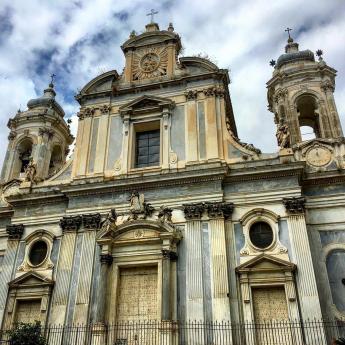Missing Books Register Associazione Librai Antiquari d'Italia Govi Alberto Libreria di Fabrizio Govi
Latest news about the Girolamini Thefts

By Fabrizio Govi, ALAI President
More than a year has passed since the discovery of the thefts and forgeries of books from the Girolamini Library. According to the judges, the director of the Library, Marino Massimo De Caro was primarily responsible for the thefts. He was arrested and convicted to seven years in prison in the first of several trials that he will have to face. This trial also involved his accomplices. The trial against several booksellers (including 3 ILAB affiliates), who according to the prosecutors have helped him in selling the stolen items, has been postponed to an as yet unspecified date.
ILAB and ALAI are very concerned about two major issues. First of all, the Italian authorities have not or cannot satisfy our repeated requests to provide us with a list of the stolen books, probably because such a list does not appear to exist. As the trial sentence indicated, De Caro himself has confessed to destroying all of the paper catalog cards recording the stolen books, and apparently no other inventory exists. This brings up the prospect that books from the Library may surface on the market for years to come, with little or no warning that they have been stolen. ILAB maintains a database of stolen books but apparently these books seem destined never to be recorded there. We strongly urge our affiliates to perform due diligence when buying books from an unknown source.
The second issue is that apparently the Italian authorities are not concerned with the production of the forgeries that De Caro has disseminated throughout the antiquarian book marketplace, especially in the United States. Our worry is that, if nobody will investigate further in this field, we will never know who physically produced those forged books, how many are still circulating, and, last but not least, how they were manufactured, in order that we might be better able to recognize them in the future. The apparent disinterest in investigating this process brings up the frightening prospect that these forgeries might continue to proliferate and appear on the market long after the authorities are no longer interested in the stolen books themselves.
